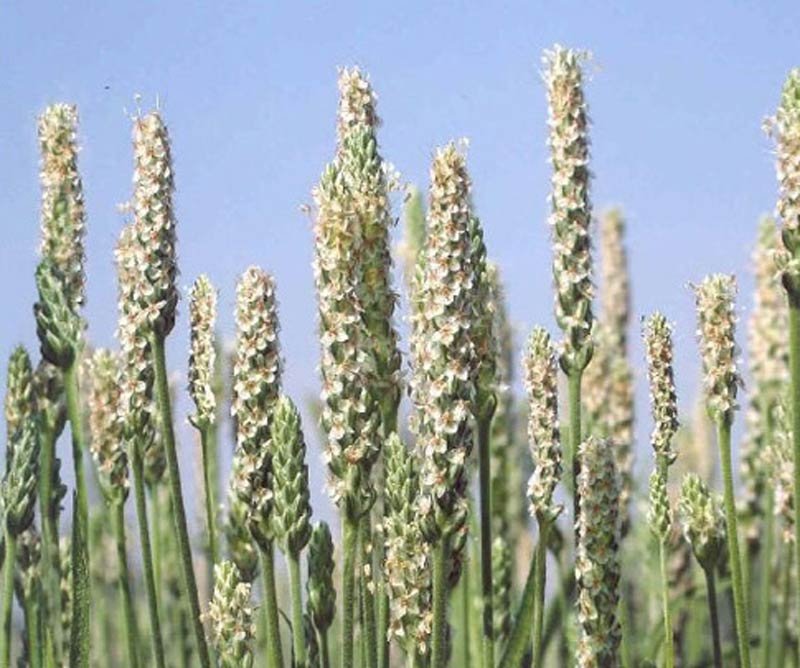
Botanical Name: Plantago Ovata Husk
Family Name: Plantaginaceae
Kingdom: Plantae
Division: Magnoliophyta
Class: Magnoliopsida
Order: Lamiales
Family: Plantaginaceae
Genus: Plantago afra
Species: P. psyllium
Popular Names: Indian Plantago, Ispaghula, Fleam, Spogel Seeds, Isabgol, Sand Plantain, Flea Seed
Parts Used: Husk, Seed
Habitat: Mediterranean region and commercially grown in Northwestern India
Description
Psyllium seed husk is a portion of the seeds of the plant plantago ovate. The husk covers the seeds that form a part of many foods. Psyllium husk is a natural, water-soluble, gel-reducing fibre that becomes mucilaginous when wet. The plant contains 70% soluble and 30% insoluble fibre. It is native to India and Pakistan. The annual crop is cultivated in the Northwestern region of India. Rajasthan alone accounts for 60% of the world’s production of psyllium. It is cultivated in over 50,000 hectares in Mehsana, Banaskantha and Sabarkantha districts of Gujarat and Jalore, Pali, Jodhpur, Barmer, Nagaur and Sirohi districts of Rajasthan. It is commonly known as ispaghula and isabgol.
Plant Chemicals
(+)- monomeric arabinose, xylose, rhamnose, galacturonic acid, semi drying fatty oil, aucubin
Uses and Benefits of Psyllium Husk
- Psyllium husk is used to relieve chronic constipation, irritable bowel syndrome, diverticular disease and diarrhoea.
- It has diuretic, emollient and cooling properties.
- The husk can be used whole, in its natural state, or dried, chopped or powdered for easy consumption.
- It can be combined with clay and taken as a detoxification drink.
- Psyllium husk is used as a regular dietary supplement to improve and maintain regular GI transit.
- It also helps lower cholesterol and control diabetes.
- The plant is used in inflammatory conditions of mucous membrane of gastro-intestinal and genitourinary tracts.
- The plant is used in the treatment of amoebic and bucillary dysentery.
- It increases the stool weight and the level of stool moisture.
- The husk is used in faecal incontinence from liquid stools or diarrhoea and helps with the management of haemorrhoids.
- It treats ulcerative colitis, anal fixtures and Crohn’s disease.
- It is often recommended after anal or rectal surgery and during pregnancy.
- Psyllium husk enhances the sensation of fullness and reduces hunger cravings.
- To improve digestion and intestinal tract health, take one psyllium husk capsule per day.
- Incorporating psyllium husk and other sources of fibre, like guar gum and oat bran, into the diet aids weight-loss.
- Using psyllium as a poultice helps to reduce skin irritation, boils, abcesses and inflamed eyelids.
Cautions
- Regular exposure to psyllium dust can result in allergic reactions like anaphylaxis.
- If taken with inadequate amount of water, the husk can obstruct gastro-intestinal tract, especially in those people who have had prior bowel surgeries or anatomic abnormalities.
- Diabetic patients should avoid psyllium husk, if they have problems keeping the blood sugar levels under control.

